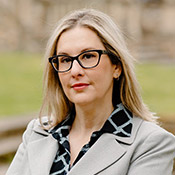ACSI Research Fellow Program
The Research Fellowship program at ACSI offers a unique opportunity for talented researchers to contribute to advancing the field of Christian education while addressing critical global challenges. By fostering collaboration, knowledge exchange, and innovative research, the program aims to make a significant impact on the world stage.
Program Aims:
- Create a vibrant and inclusive international research community.
- Foster collaboration, knowledge exchange, and innovative solutions to address both US and global challenges through research projects in Christian education.
Program Oversight:
- The fellows will collaboratively work with ACSI’s research department and Thought Leadership and the Research Director will oversee the program.
ACSI Fellows Collaborate on Research to Advance Faith-Based Education
ACSI Fellows collaborate with the Thought Leadership team (Research Department) to develop research and Working Papers on important topics in education, spirituality, and culture, focusing on their impact within the realm of Christian education. Their work addresses current trends and challenges, offering valuable insights for advancing faith-based learning.

RiB is a biannual publication by ACSI, aimed at sharing the latest research findings and insights on the Christian school sector. It is available exclusively to ACSI member school and is managed by ACSI Director of Research.

Lynn Swaner Ed.D.
President of Cardus USA – ACSI Senior Research Fellow

Matthew Lee, Ph.D.
Clinical Assistant Professor of Economics at Kennesaw State University - ACSI Senior Research Fellow

Francis Ben, Ph.D.
Associate Professor & Head of Postgraduate Coursework and Research at Tabor College Adelaide Australia – ACSI Global Research Fellow

Alison Heape Johnson
PhD candidate at the University of Arkansas – ACSI Junior Research Fellow
Eligibility:
- Understanding of Christian education.
- Strong academic credentials (e.g., relevant degrees, publications, minimum a Ph.D. candidate in education programs for Junior Fellow and a Ph.D. or Ed.D. for Senior Fellow).
- Demonstrated research excellence.
- Experience in international research collaboration.
- Excellent English communication skills.
- Minimum five years experience of doing research.
Nomination and selection process:
- The selection of the fellows is done through ACSI’s internal nomination.
Creating a Total Rewards Philosophy
Creating a Total Rewards Philosophy: The First Steps
A Total Rewards Philosophy is a set of tenets about how an organization intends to reward employees and why. This includes compensation, benefits, and perks, but may also include the strategy for employee professional development and career progression. In many organizations, matters of compensation are either a mystery or incoherent, even among key staff members who make important financial decisions for the organization. Programs (or lack thereof) shrouded in secrecy or avoidance of the topic may breed distrust and confusion among staff, especially if they notice erratic and inconsistent compensation practices and promises. But an effective and wisely transparent Total Rewards Philosophy allows everyone to know where they are, what they can reach, and how the organization can support them in getting to their financial, health, and wellness goals. Most importantly, it helps position a workplace to honor this Scripture: “The worker is worthy of his wages” (1 Timothy 5:18, NKJV).
Understand Where You Stand: The Importance of Benchmarking
Benchmarking is the process of comparing your company’s positions and benefits against those of others in the industry. This provides a clear view of where you stand in the market. For example, until 2022, ACSI was uncertain about the competitiveness of our salaries. To address this, we conducted an independent audit of our positions. Even if immediate changes aren’t feasible, understanding your current standing is an early first step towards strategic planning for compensation.
Lag, Meet, or Exceed the Market?
This refers to how competitive your organization will be in terms of compensation relative to market rates. Some organizations choose to lag the market, which means that, intentionally or out of necessity, employers enact a strategy of being in the lower percentiles of pay. This is common in schools, ministries, non-profit organizations, and start-ups, which rely on successfully attracting those motivated by mission, aligned with the organization’s values, and being part of something exciting. The challenge for these employees is the constant dueling priorities of dedication to the mission and the financial needs they have. These organizations may attempt to make up for this by boosting other parts of the total rewards package that are not as expensive, such as generous time off. Or they may choose to utilize resources to make one benefit offering truly great, such as $0 premiums for the medical plan. Employers constrained by resources to compensate at market rates can still find ways to support employees creatively and in a way that is fulfilling for those who work there. As you pray, God might call some of you to create a plan to boost the pay at your school!
There are also organizations that choose to benchmark pay at and around the 50th percentile, or to meet the market. This strategy helps open candidate pools that are otherwise inaccessible due to candidate financial restraints. Another benefit is that it aligns other benefits, like health care and retirement, with market expectations. A challenge, however, is that employees over time may find these organizations too average and find themselves ready to take less pay to work the job that they want or reach a point in their career where they can reap the financial rewards of developed skills and experience and look elsewhere. Don’t think that good pay and benefits are everything. Culture, sense of purpose, and career aspirations matter in this as well.
Finally, leading are organizations that desire to set labor rates in job categories and industries. They may be well-funded, established, large, and industry leaders or experts and have high barriers of entry in their industries. Organizations that prioritize leading the market have often gone “all-in” on attracting the best possible talent to continue their innovative approaches (think well-resourced organizations) and often must pay the most because of their extraordinarily niche need for certain skillsets. There are drawbacks, however, as organizations that pay a lot may have so much invested there that there is not much left for other things that employees might care about, and there is a temptation from managers and leaders to devote less time to the quality of their leadership since people are being paid so well. Some employees also get burned out and would take less pay to have more flexibility and better work-life integration, which is harder to strike when one is paid so well and thus the expectations are so high.
Determine How Compensation Decisions are Made
Another important step in determining Total Rewards Strategy is choosing what goes into the decisions to progress an employee along the paygrade. Some common options that employers choose from are seniority, merit, education, and cost of living considerations. Others choose to increase everyone by the same amount without consideration of any of the above. Further complicating this decision are applicable state and federal laws that have a say in the decision criteria. There are many pros and cons to any approach, but whatever is chosen should be supported by the mission and vision of the ministry, practiced consistently, and legally compliant.
Who Do You Want to Attract?
It is important to look at your mission and vision to help guide you toward understanding what kind of employee you would like to attract and retain. What skills, education, and experience are ideal? What is essential for them to believe concerning faith, culture, family, and the Bible? What are these individuals motivated by, and how can you construct your Total Rewards Philosophy to position yourself to land them for your school? Even organizations that must lag the market can leverage the invitation for others to be a part of something eternal in their favor. Know who you are and what kind of employee you want, and relentlessly spread the message of invitation into something incredible!
We Are Just Getting Started
These first steps in creating a Total Rewards Philosophy can better position you with employees and candidates, no matter if you lag, meet, or exceed the market. The key is leveraging the advantages of your position to demonstrate the value of working for your school. Each of you has the blessing of an eternal impact at every position in the organization that is momentum for any Total Rewards Philosophy. Prayerfully leveraging that for the glory of God to attract and retain staff is a calling we should all embrace in our recruiting and compensation practices!
Previously published on June 18, 2024.




Leave a comment